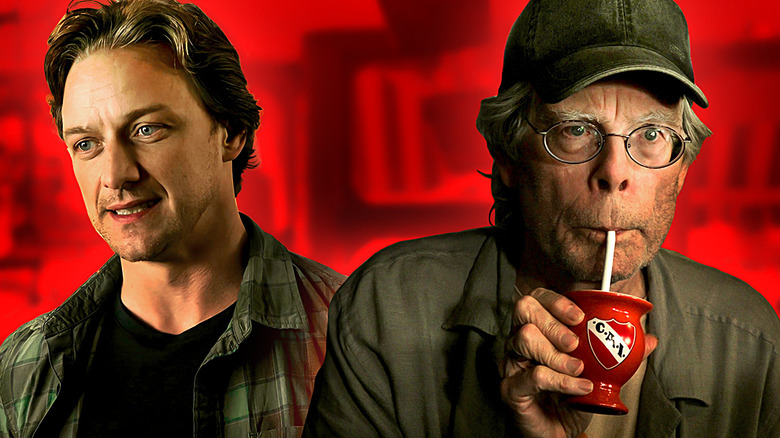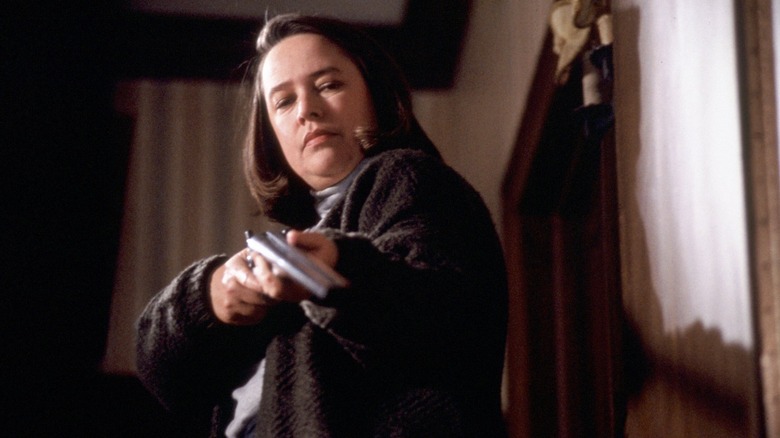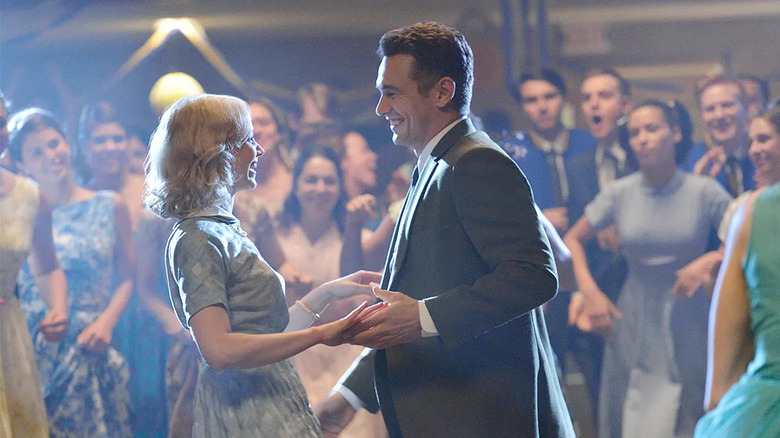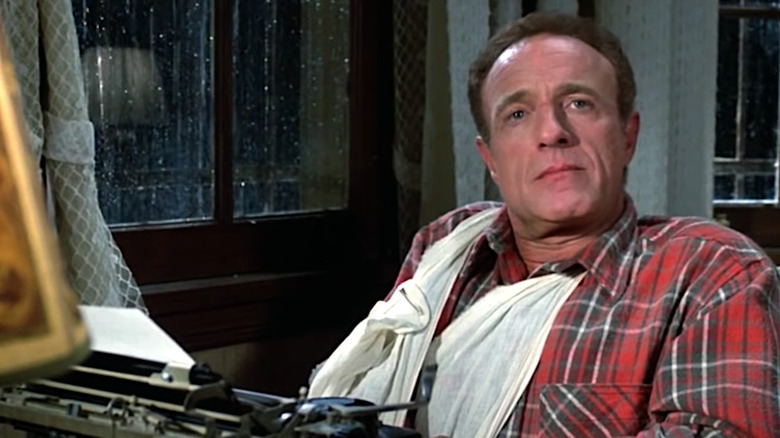We could obtain a fee on purchases made out of hyperlinks.
(This publish accommodates spoilers for a number of Stephen King books. When you see the title of a e book talked about, count on to see a spoiler quickly after.)
Each Stephen King fan remembers their first expertise with a foul King ending. For a lot of it is “The Stand,” the place after over a thousand pages of build-up the day is saved by God himself swooping down and blowing up the unhealthy guys. For different readers, it is “It,” which contains a intercourse scene so controversial that almost all non-book readers assume you are joking whenever you inform them about it.
My first disappointment with King got here on the finish of “The Lengthy Stroll,” a riveting 300-page thriller King wrote beneath the pseudonym Richard Bachman. I learn all the e book in a single sitting virtually with out even realizing it; it was disturbing, immersive, and fast-paced, and by the ultimate chapter I used to be ready to present it a five-star ranking on Goodreads. However then it ended on a flat, complicated observe; the principle character gained the lethal strolling competitors, however the prose all of a sudden derailed into incoherent madness. On first learn, it felt too abrupt, too unsatisfying, to actually work for me. My prevailing response was to surprise, “…That is it?”
“Stephen King sucks at endings” is a typical reader grievance, however King himself is not too labored up about it. In reality, within the 2019 film “It: Chapter 2,” he referenced this grievance in a enjoyable meta-joke, grouchily telling an creator character that he hated the ending of his new e book. King is a pantser, not a planner, so he largely writes his books by intuition slightly than making an attempt to plot all of it out beforehand. “I imagine plotting and the spontaneity of actual creation aren’t suitable,” he stated in his memoir, “On Writing.” He added, “Why fear in regards to the ending anyway? Why be such a management freak?”
Numerous King followers may consider some good counter-arguments to this line of reasoning. They may level to the endings of “Below the Dome” or “Cell” and say, “This, Stephen, is why you must fear in regards to the ending!” However are most of King’s endings actually that unhealthy? Let’s give them a more in-depth look.
The undeniably good endings: The Shining, Distress, Carrie, and Pet Sematary
King’s finest ending, a minimum of among the many thirty or so books I’ve learn from him, is “Distress.” This can be a page-turner a couple of author, Paul Sheldon, who’s trapped in a home together with his primary fan, Annie Wilkes. The rising rigidity between Paul and Annie is resolved satisfyingly, profiting from a number of Chekhov’s weapons established early on; extra essential, nevertheless, is the way in which the denouement follows by way of on Paul’s existential disaster as a author. (Paul’s disaster mirrored King’s personal expertise in a whole lot of methods.) Paul realizes that Annie was proper in her complaints about his embarrassment of being a romance novelist and that he was unsuitable to have some contempt for the ladies who cherished his “Distress” books a lot. Paul does not simply begin to heal from his months of intense trauma; he additionally surprisingly grows as an individual.
In fact, most of King’s finest endings have a tendency to complete on a darker observe. “The Shining,” “Carrie,” and “Pet Sematary,” as an example, are nice due to how they barrel full-speed in the direction of catastrophe they usually do not ease up once they get there. King’s darkest endings are typically in his shorter books — and by brief I imply beneath 1,000 pages — seemingly as a result of readers are extra keen to just accept a bleak ending for a personality they have not spent too a lot time with. With larger books like “It” and “The Stand,” it appeared like King felt he owed the reader a happier ending, as a reward for getting so invested in most of those characters over so many pages; the issue was that he could not fairly make the completely satisfied endings really feel earned.
Going off the final rule that the shorter the story the higher King’s ending is, it is price noting King’s many, many brief story/novella collections over his profession. “Evening Shift,” “Simply After Sundown,” and (my private favourite) “Completely different Seasons,” are all full of a few of King’s finest endings. One that also sticks with me, over a decade after studying it, is “The Jaunt” in his 1985 assortment “Skeleton Crew,” which ends in a gut-punch that is been constructed up superbly over the previous 30 pages. If you’d like a assured nice King ending, choose up a brief story assortment of his and browse one at random.
King’s divisive endings: 11/22/63 and The Darkish Tower
With some King books, followers cannot agree in the event that they stick the touchdown or not. For lots of readers, “11/22/63” ends completely, centering its last act not round Jake’s time-travel shenanigans however round his tragic love affair with Sadie, who he falls in love with within the ’60s and is pressured to reconnect with as a stranger within the 2010s. Many followers love this ending and take into account “11/22/63” to be one in every of King’s finest late-career works.
Different followers hate it, nevertheless, as a result of “11/22/63” form of bails on its major hook. The novel is (seemingly) primarily based on the query, “What if you happen to may return in time and cease JFK from being assassinated?” There is a respectable argument to be made that JFK’s loss of life was a internet good for society, one which helped the Civil Rights Act cross the next yr; however you would additionally argue {that a} surviving JFK may’ve helped avert the large nationwide rightward shift in 1968.
What was King’s stance on this debate? Seems, he had none. Jake efficiently saved JFK’s life in ’63, however this occasion prompted harm to the space-time continuum, leading to excessive earthquakes and different pure disasters that did not occur in our timeline. The result’s that when Jake returns to the current, the world is an apocalyptic nightmare, not due to something JFK did however as a result of the planet itself is magically falling aside. For any reader hoping to learn the creator’s earnest try and reply some of the compelling “what if?” questions in all of American historical past, this growth seems like a complete copout. The entire e book is principally an enormous bait-and-switch, providing you with a shock tragic love story as an alternative of an alternate historical past story, and that storytelling selection does not work for everybody.
One other divisive finale of King’s is the ending to the 7-part “Darkish Tower” collection. There are specific parts from this e book that annoy/disappoint most readers — primarily, the anti-climactic deaths of a number of villains who’d been constructed up as ominous threats for 1000’s of pages — however there’s one main plot level on the very finish that is really a “like it or hate it” form of second: the principle character Roland lastly reaches the titular Darkish Tower, just for it to ship him again in time to the beginning of the primary e book, together with his reminiscence of books 1-7 wiped. Roland’s consciousness is trapped in an everlasting loop looking for the Darkish Tower; there’s nonetheless some hope that his wearisome quest will finish sometime, however most likely not for a minimum of a few loops extra.
I distinctly bear in mind studying that reveal and instantly considering, “Oh, I do not like this.” However the extra time goes by the extra I admire the ending for simply how twisted it’s. Sure, it hurts my coronary heart, however what else are Stephen King books for?
King tries to maintain his endings practical, which readers do not all the time love
A giant consider why King’s endings are so divisive is that they are typically far sadder than the standard Hollywood method. King takes trauma critically, which signifies that even when a major character survives their novel, it can at finest take them some time earlier than they will work by way of the PTSD. Even “Distress,” which ends with Paul’s new e book being a hit and him discovering himself once more as a author, nonetheless makes it clear that Paul might be haunted by what occurred to him for the remainder of his life.
The result’s a whole lot of endings that are not satisfying at first, however which the reader does be taught to begrudgingly respect as time goes by. “The Lengthy Stroll,” as an example, has an ending I got here round to as a result of on additional thought it is each practical and thematically becoming that the principle character’s victory would grow to be pyrrhic. In fact, he would lose his thoughts after so many hours of continuous stress and exhaustion. The reader was warned early on simply how ugly the ultimate stage of the Lengthy Stroll seems to be; why would the protagonist’s journey finish any in a different way?
One in every of my favourite King endings comes from one other of his Bachman books: “The Working Man.” After spending the entire e book being chased throughout America as a part of a messed-up televised recreation present, the principle character will get his revenge by crashing a aircraft right into a skyscraper the place the present’s producer works. It is darkish and offended, and it is the form of ending King most likely would not have written in a post-9/11 setting, nevertheless it’s additionally one which seems like one thing the entire e book was heading towards. Provocative as that last scene is, I can not think about the e book ending in some other manner.
Some Stephen King endings could fall flat, and others may be too darkish or messy to completely take pleasure in on the primary learn, however I would say the “King sucks at ending” fame is a bit overblown. Within the case of “The Working Man,” a cynical page-turner in determined want of an excellent film adaptation, King nailed it.











